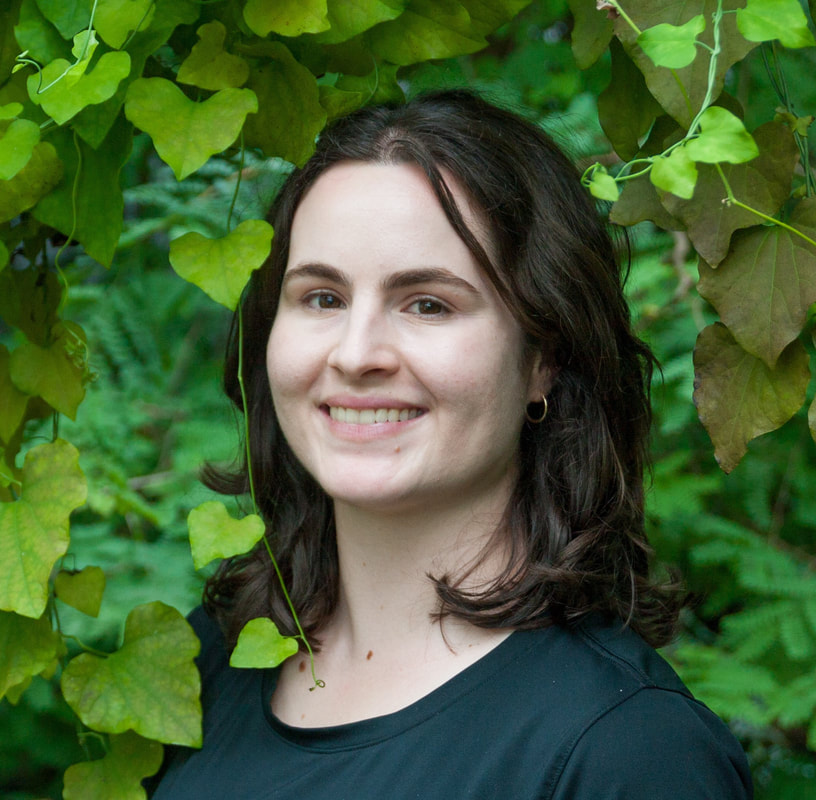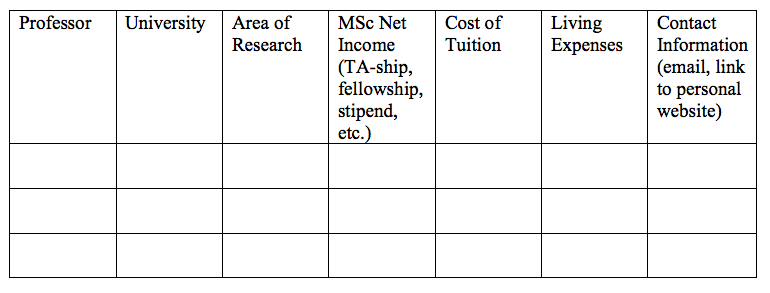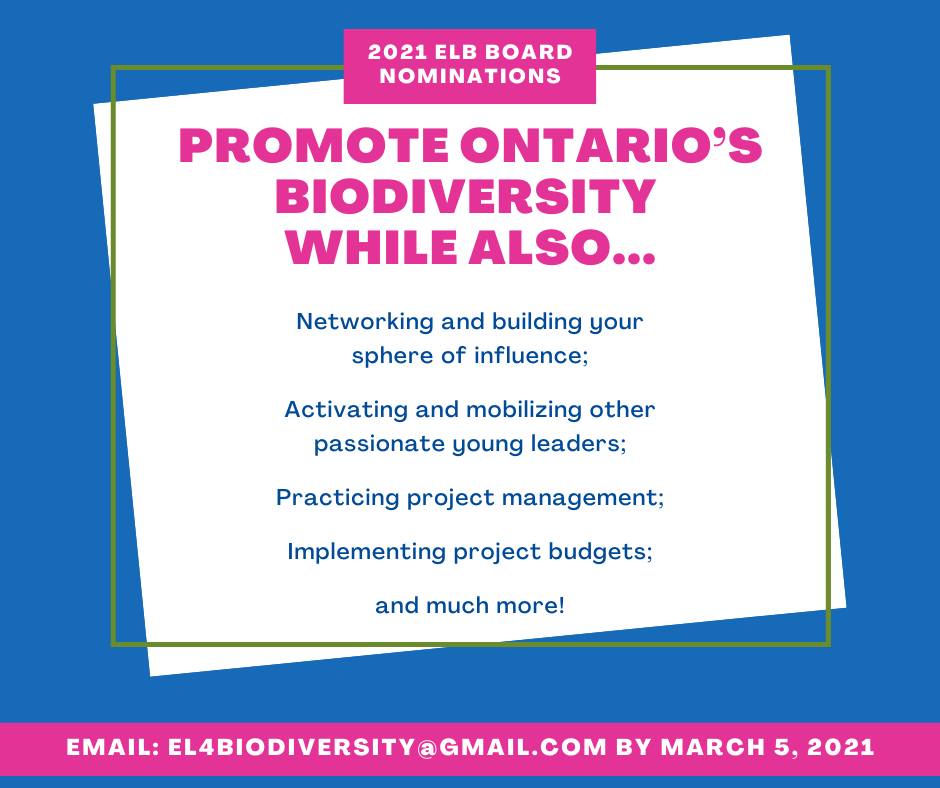|
by Jacqueline Weber When I left university after obtaining my Master’s degree, I had never expected to find myself back in school. I found, however, that no part of the year 2020 went as planned, and in September of 2020 I felt very lucky to join the Ecosystem Management Technology program at Fleming College. Although I treasured my university experience, I needed to build a bridge between my transferrable skills and the specific demands of a career in the environmental sector. I’m sure that many other university graduates have felt the same. I believe a college education can be that bridge. In the years leading up to my enrolling at Fleming, I studied Biology at Queen’s University. My Master’s studies helped me develop as a researcher, a project manager, and a technical writer. Alongside my research I pursued the study of biodiversity and natural history, both to feed my curiosity, and to develop skills for a future working in the environmental sector. The post-graduation job hunt, however, did not go quite as planned. I quickly learned that although I had many transferrable skills, my lack of applied field skills and job-specific training made it hard to break into the environmental sector. It was a conversation I had with a fellow attendee at an electrofishing course in September of 2020 that changed the trajectory of my year and put me on the path to a college education. I had been seeking out courses to expand my environmental skillset all summer, but COVID-19 had thrown a serious wrench in those plans! In talking to my fellow electrofishing trainee about his college experience, I learned that many Ontario colleges offer 8-month programs for university graduates, and the college experience sounded like just the sort of applied learning that I needed to build my skills for the environmental sector. Full of questions, I posted on the Emerging Leaders for Biodiversity Facebook group asking about peoples’ college experiences, and responses came pouring in! Many voices chimed in, saying they had travelled a similar academic path as I had; after graduating from university and wanting to expand their job-specific skills, they joined college programs as a way to prepare themselves for a career in the environmental industry. Over and over I heard praise for the programs at Fleming College. Three days after that fateful electrofishing course, I began the application process and soon I was enrolled in the Ecosystem Management Technology program at Fleming College.
I’m hopeful that my remaining four months at Fleming will leave me with valuable technical skills, a widened professional network, and a path to a career where I can put all my skills to use in environmental stewardship, helping to create a better and greener future for the human, plant, and animal residents of Ontario.
1 Comment
by Meghan Ward Finishing up your undergraduate degree is a feat in and of itself, so congratulations! If you are considering continuing on in academia, the next step might be a Master of Science (MSc). Most MSc. degrees are broken into two broad categories: thesis based, and course based. For the purpose of this article, I will be focusing on finding a supervisor for a thesis-based MSc, as that is where my experience stems from. There are a variety of ways to find a potential MSc supervisor. You may have met a potential supervisor while completing your undergraduate degree, while at a conference, or while scrolling on Twitter (I’m not kidding – #ScienceTwitter is a great resource to find like-minded people in your field!). To begin, you will want to have a general idea of the research you wish to pursue. This will make it much easier to find a supervisor, as you can narrow down your search to faculty who study what you are interested in. For example, you are interested generally in conservation, and specifically on the impact of roads on animal mortality rates. Of course, it is totally normal to have more than one research interest! Keep them all in mind when searching through faculty pages. Next, you will want to compile a list of potential universities to attend. I knew that I wanted to remain in Canada for the duration of my MSc, so I compiled a list of 10-15 universities in Canada that I would be happy to attend. This step often confuses students because we are taught to value the research above all else and that the research should be the single defining trait that dictates where we attend graduate school. I disagree. While I do think it is important to pursue a topic that is of interest to you, I also believe that there is much more to a graduate degree than your thesis project. You want to ensure that you are living in an area you enjoy and feel safe in. You will also want to consider tuition costs and MSc stipend payments and the cost of living (i.e. rent, transportation, food, etc.) in different cities. Because of these various factors, I recommend putting just as much weight towards where you go to school as you do when choosing who will supervise you. Now that you have a list of potential universities, you can get to the fun part; finding supervisors! The best way to do this is to find the faculty list within the department of your choosing. For example, if you are interested in conservation you will find the list of Biology professors at your chosen university. Some universities categorize this further by creating distinctions between Evolution and Ecology, Health Science, Environmental Science, etc. Most universities will pair the list of professors with a short biography about their field of research. For example, Laurentian University lists Dr. David Lesbarreres on their faculty and highlights his interest in amphibian conservation, disease ecology, and road ecology. Once you have found a professor of interest, click on their profile! You can now find their personal websites, previous publications, and their contact information. I recommend going through the entire faculty list and keeping track of who you are interested in, what they study, a link to their website, and their contact information. Create something similar to the chart below to keep everything organized: Once you have completed the chart above, you can begin contacting your potential supervisors! Stay tuned for the second part in this series! I will be chatting about drafting the first email you send to potential supervisors, and all the details you should be including.
Applications are now open for a variety of ELB Board of Directors positions! You can self-nominate or be nominated.
Joining the Board will allow you to meet interesting people who will add to your sphere of influence and develop skills important for any career, including: project management, strategic planning, networking, and budgeting. The responsibilities of Board membership include participation in the administration and decision-making for the organization, as well as managing working groups that accomplish ELB's various projects. If you are interested, please submit a maximum 400 word statement of interest that includes a bit about yourself, why you are interested in participating on the Board of Directors, as well as interest and experience in particular responsibilities, and a photo of yourself which may be shared with members for the purposes of voting. Please email a Word document or PDF to [email protected] by March 5, 2021, with the subject line: ELB Board Nomination |
ELB MembersBlogs are written by ELB members who want to share their stories about Ontario's biodiversity. Archives
January 2023
Categories
All
|






 RSS Feed
RSS Feed